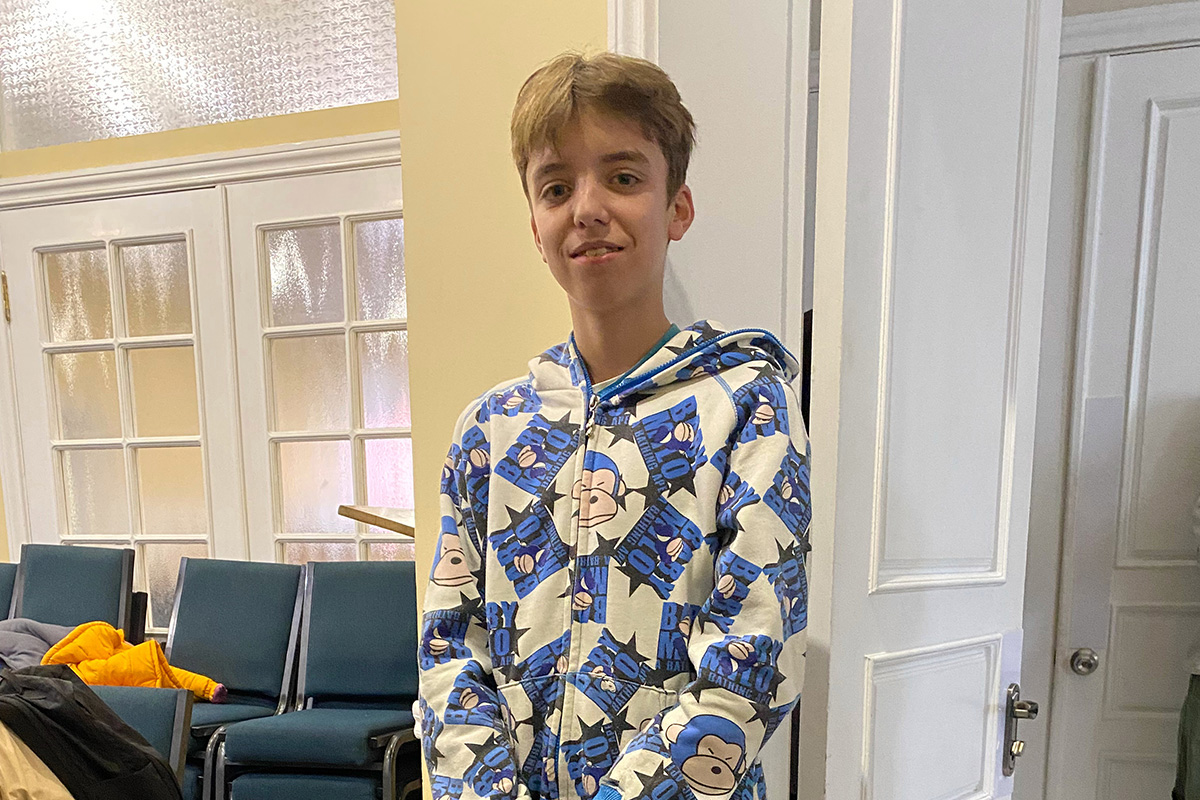A Ukrainian teenager’s return from a Russian deportation camp
Ukrainian teenager Vitaliy Vertash is one of the thousands of children from the war-torn country to have been unlawfully deported to a Russian “re-education” camp for minors in territories occupied by Moscow.
Despite the forced relocation of children being prohibited by international law, according to the latest data from Ukrainian authorities, more than 19.300 Ukrainian children have been illegally deported since Moscow invaded its neighbour. Alarmingly, only 360 children have so far been returned.
Many children at these camps are being forced to learn Russian culture, language, and worldviews as part of pro-Russian indoctrination schemes. Many, like 16-year-old Vertash who spent six months in a camp in Crimea, which is under Russian occupation, are also subjected to physical and psychological abuse.
“It was very hard … we were beaten in the camp with an iron stick,” he recalled in an interview with Context.ro. “Every morning began with the Russian national anthem. Those who refused to sing had their phone, a portion of food, and the opportunity to take a shower taken away for four days.”
Those who did not comply with the guards’ demands, he said, were sent into the camp’s cramped basement for punishment. One girl, he recalls, was brutally beaten which left her with a large bruise on her back. As well as the children being made to sing Russian songs, they were also forced to watch on as guards burned their native Ukrainian flag.

vitaliy vertash
Photo source: Context.ro
There are growing concerns about the plight of Ukraine’s deported children, which prompted the International Criminal Court last month to issue an arrest warrant for Russian President Vladimir Putin, and his Commissioner for Children’s Rights, Maria Lvova-Belova, for their alleged role in the systematic, illegal deportation of minors.
In one of the corridors at the deportation camp, Vertash said, a statue of President Putin stood proudly, inscribed with the words: “Putin is king.”
On top of the ICC’s unprecedented legal efforts, Ukrainian authorities and nongovernmental organizations are working hard trying to return the thousands of deported children. Save Ukraine, an NGO, is one such organisation that is helping to reunite children with their families.

salvati ucraina
Photo source: Context.ro
In March, the NGO returned 17 children – all of whom hail from the Kherson and Kharkiv regions and were deported last October – back from the camp in Crimea. Vertash, who is from the town of Beryslav, was among that group who returned.
“They were deported or kidnapped by the Russians,” Mykola Kuleba, founder of Save Ukraine and a former children’s rights official, told Context.ro. “Many children remain there, our task is to bring them back home. Otherwise, they (can) receive the status of orphans in Russia, Russian citizenship, and after that, they can be adopted.”
The children who were rescued in March, like Vertash, were deported to the Crimea camp under the pretext of a relaxing, two-week coastal retreat. Their parents, however, began to worry as time dragged on and there was no sign of their return.
Many parents, like Vertash’s mother, Inessa, were unable to embark on their own missions to return their children, so instead signed power of attorney to Save Ukraine to fight for their safe return. The exchange was made possible after lengthy negotiations between the NGO and Russian officials.
„I was very worried about how everything would go,” Ms. Vertash, who spoke to her son daily via telephone, said. “The director of the school offered Vitaly to go on vacation, (but) at first we refused … there was no electricity in Beryslav and there were problems with food. The main thing for me is the health and safety of my son.”

familie vitaliy vertash
Photo source: Context.ro
One day during Vertash’s ordeal, he called his mother to ask whether she had given up on him. His explanation of that panicked call shines some light on Russia’s troubling adoption schemes it is allegedly carrying out of Ukrainian children to Russian families.
Vertash says that the staff at the deportation camp told him that he would be transferred to a boarding school in Pskov, western Russia, to be adopted by a Russian family. “They said that our parents abandoned us. I asked my mother, (and) she was in shock,” the teenager said.
Ms. Vertash says she immediately contacted the director of the camp to clarify the situation, and their answer only sparked further worry. “You won’t take them away,” they told her, “these are children of Russia.”
In returning the 17 children, the Save Ukraine team crossed through Poland, Belarus, and Russia, which the NGO chief, Kuleba, describes as a “difficult and dangerous” journey. At the Russian border, his team was interrogated for six hours by Russian border officials but managed to gain entry.
“The Russian Federation at the highest management level are criminals who planned, and are carrying out the plan to destroy Ukraine and the genocide of the Ukrainian people,” Kuleba said. “This is a war crime and everyone should be held accountable.”
Kuleba says he hopes to get justice for the children by working with the Security Service of Ukraine to document the alleged war crimes to provide as evidence for the ICC should a trial ever come to fruition. Experts, however, believe the chances of a trial are remote.
For Vertash and many children like him, the trauma of being unlawfully deported will likely stay with him for years to come. But for now, he is just glad to be among the relative few to have returned home safely. “Seeing the border of Ukraine, we just ran,” he said.
Edited by Stephen McGrath


